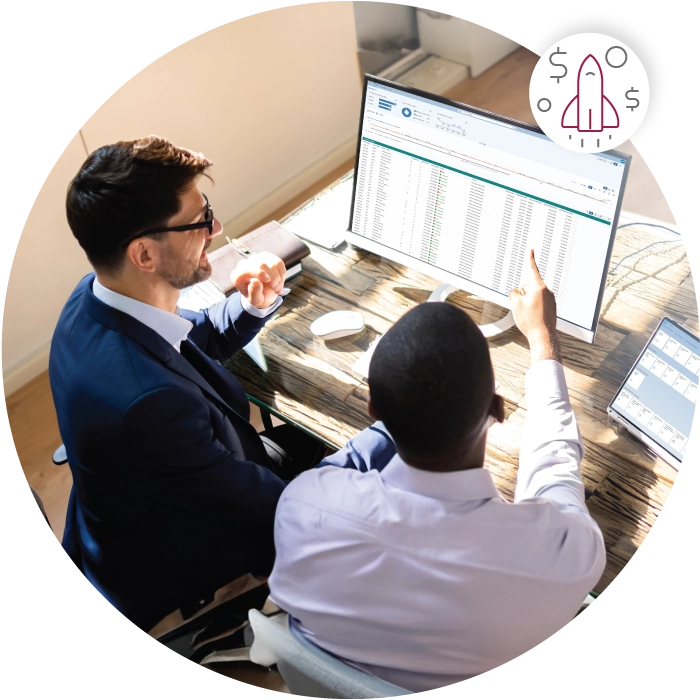
We work with
Passion
We are a system integrator, software development partner, and managed services provider that helps companies improve their operational efficiency and decision-making capabilities utilizing SAP® technology.
End-to-end Insurance Services
Optimize. Automate. Simplify.
Business Technology Services
Consulting. Maintenance. Support.
Sustainability Advisory Services
Explore. Implement. Report.
What we do
Performance
As an SAP development partner for over 25 years, we bring expert knowledge to every one of our engagements in accounting, finance, regulatory reporting, performance management, customer experience, and IoT.

Why msg global?
People
With our passion, our people, and our genuine desire to achieve operational improvements, we want to see our clients accomplish their performance objectives.
WithPeoplePassionPerformancewe create the best experience.

Where people are the heart of the company.
We believe SAP provides the best enterprise software to help companies transform data into actionable insights.
Why wait?
Contact us today
We’ll work with you to help you understand all your options and select the solutions that best suit your needs to get your business running the way you want it to run.
How we think
Purpose-driven
Business is more than the bottom line. What we do has a significant impact on people and the planet. We want to help companies create positive results and provide those services in an ethical and sustainable way.
Do what you love. Love what you do.
Our company tagline – Passion. People. Performance. – frames the way we think about what we offer our clients. Learn a little more about why passion is so important.
People are the heart of any business and the center of everything we do. Kerstin shares some thoughts on people in our tagline – Passion. People. Performance.
Better Performance Is Never an Accident.
Performance is the third word in our company tagline – Passion. People. Performance. Uli provides some insights into why performance is an integral component of the services we offer.
What customers say
Performance
We are committed to intelligent IT and industry solutions — from consulting and development to implementation. Our services help companies maximize the opportunities of digitalization to improve operational efficiency and decision-making capabilities.















